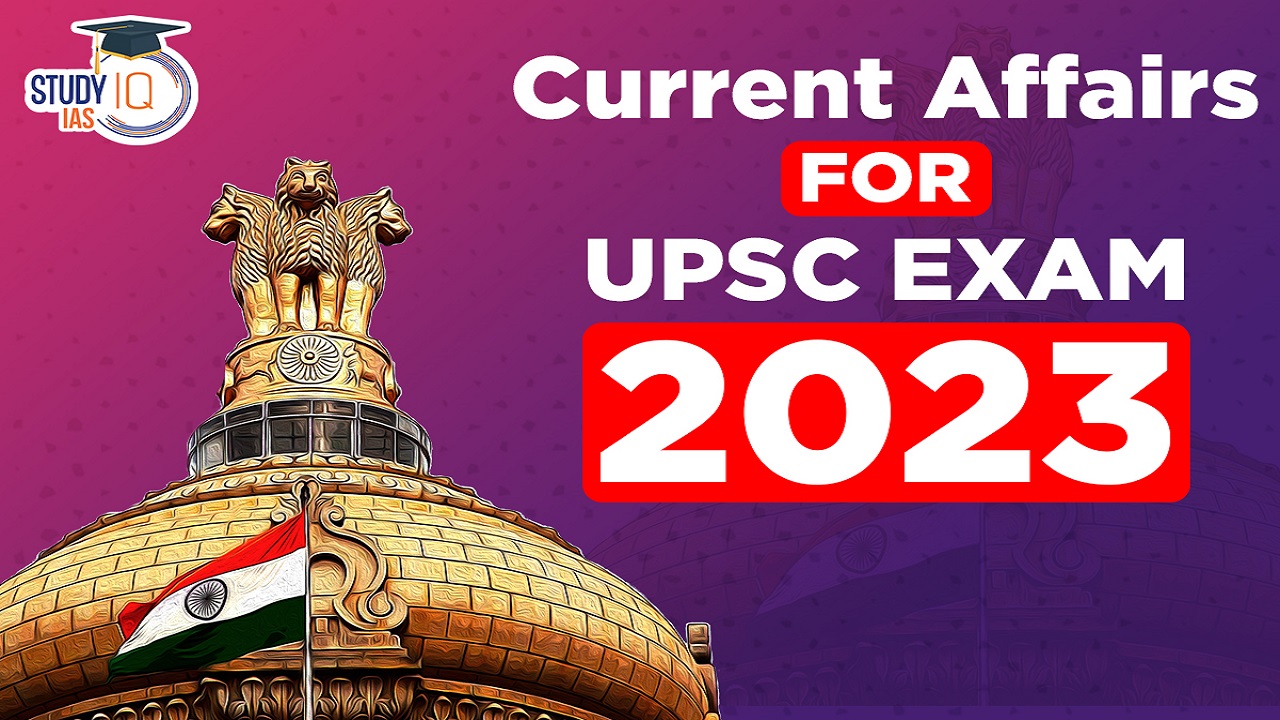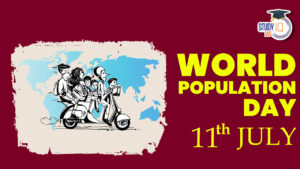Current Affairs 15th June 2023 for UPSC Prelims Exam
CBI General Consent
Context: Tamil Nadu announced that it has withdrawn the general consent given to the Central Bureau of Investigation (CBI), under Section 6 of the Delhi Special Police Establishment (DSPE) Act.
Highlights
- Recent Trend: Currently nine States Mizoram, West Bengal, Chhattisgarh, Rajasthan, Maharashtra, Kerala, Jharkhand, Punjab and Meghalaya had withdrawn their general consent given to CBI.
- The CBI is governed by The Delhi Special Police Establishment (DSPE) Act of 1946, which requires the investigative agency to obtain the consent of state governments before it can investigate a crime in a particular state.
- As per Section 6 of the DSPE Act, 1946, the CBI needs consent from the respective State governments for conducting the investigation in their jurisdiction.
- A general consent to CBI granted by State governments enables the central agency to carry out investigations without such hindrances.

Impact of Withdrawal of Consent
- Legal and Constitutional Basis: According to Section 6 of the Delhi Special Police Establishment Act of 1946 under which the CBI functions, the State’s consent is required to extend CBI investigation beyond Union Territories.
- Types of Consent:
- General Consent: When a state gives a general consent to the CBI for probing a case, the agency is not required to seek fresh permission every time it enters that state in connection with investigation or for every case.
- A general consent is given to facilitate that seamless investigation in a case of corruption or violence.
- Specific Consent: When a general consent is withdrawn, CBI needs to seek case-wise consent for investigation from the concerned state government.
- If specific consent is not granted, the CBI officials will not have the power of police personnel when they enter that state.
- This hurdle impedes seamless investigation by the CBI.
- General Consent: When a state gives a general consent to the CBI for probing a case, the agency is not required to seek fresh permission every time it enters that state in connection with investigation or for every case.
About Central Bureau of Investigation (CBI)
- Establishment: The CBI was set up in 1963 by a resolution of the Ministry of Home Affairs based on the recommendations of the Santhanam Committee on Prevention of Corruption (1962–1964).
- Type: The CBI is not a statutory body. It derives its powers from the Delhi Special Police Establishment Act, 1946.
- Parent organization: The CBI is under the administrative control of the Ministry of Personnel, Pension & Public Grievances, Government of India.
- Functions:
- It is the premier investigating police agency in India.
- It also provides assistance to the Central Vigilance Commission and Lokpal.
- It is also the nodal police agency in India which coordinates investigations on behalf of INTERPOL Member countries.
Current Affairs 14th June 2023 for UPSC Prelims Exam
NATO
Context: Recently, Turkish President said that there would be no NATO entry for Sweden unless anti-Turkish protests stop in Sweden.
About the North Atlantic Treaty Organization (NATO)
- Establishment: NATO was formed in 1949 with the aim of acting as a deterrent to the threat of Soviet expansion in Europe after World War II.
- The Washington Treaty – or North Atlantic Treaty – forms the basis of the NATO.
- Purpose: The organization acts as a collective security alliance with the aim of providing mutual defence through military and political means if a member state is threatened by an external country. (Article 5 of the North Atlantic Treaty).
- NATO’s Open-door policy (Article 10 of the treaty): It enables any European country that can enhance and contribute to the security of the North Atlantic area to join the alliance.
- Major Non-NATO Ally Status: It is a designation given by the US government to close allies that have strategic working relationships with the US Armed Forces but are not members of the NATO.
- The US has designated 30 other countries including Japan, South Korea, Japan, Israel etc. as major non-NATO allies.
Relevance of NATO in the contemporary times
- To deal with emerging threats: NATO’s core mission of collective defence remains highly relevant in the contemporary geopolitical landscape, as global security threats such as terrorism, cyber-attacks, and hybrid warfare continue to evolve.
- Crisis management: The alliance has played a critical role in managing crises and conflicts around the world, including in Afghanistan, Kosovo, and Iraq.
- Response to COVID: NATO responded to the COVID- 19 crisis by protecting military personnel, facilitating the airlift of critical medical supplies, and harnessing resources to deliver innovative responses.

Antardrishti Dashboard
Context: A financial inclusion dashboard named ‘Antardrishti’ has been launched by RBI.
About Antardrishti
- The dashboard has the capability to provide necessary knowledge to evaluate and track the development of financial inclusion by recording relevant data.
- The dashboard will make it possible to assess the degree of financial exclusion at a granular level across the nation so that additional steps can be taken to address it.
- Presently the dashboard is intended for internal use in the RBI.
Financial Inclusion:
Financial Inclusion is an effort to provide access to affordable and appropriate financial products and services, such as savings accounts, credit, insurance, and payment systems.
Measures by RBI to address financial inclusion:
- Financial Inclusion Index:
- RBI had constructed the Financial Inclusion (FI) Index in 2021 to measure extent of financial inclusion in the country.
- The FI-index contains information on the banking, investments, insurance, postal, and pension sectors.
- The index captures different aspects of financial inclusion in a value ranging from 0 to 100, where 0 represents total financial exclusion and 100 represents complete financial inclusion.
- Parameters: Access (35 per cent), Usage (45 per cent), and Quality (20 per cent) are the main parameters. They further contain various other indicators.
- Financial literacy:
- RBI carries out financial literacy campaigns through print, electronic, and social media. These are aimed at creating awareness about financial issues and help people make informed financial decisions.
Duty-Free Quota Free (DFQF) Scheme
Context: About 85 per cent of products offered by India at zero tariff to least developed countries (LDCs) under the duty-free quota free (DFQF) scheme of the WTO remains unutilized.
More on the news:
- Data shows that China’s utilization rate for similar tariff lines is 64%, while only 8% of the lines showing utilization rate above 95%.
- Utilization rates for beneficiary LDCs differ, with Guinea and Bangladesh showing low rates (8% and 0% respectively), while Benin has the highest utilization rate of 98%.
- The low utilization of the preference scheme by LDCs is not a result of exporter awareness but rather due to existing barriers that prevent the effective use of preferences.
About DFQF scheme
- Origin: The decision to provide duty free quota free (DFQF) access for LDCs was taken for the first time at the WTO Hong Kong Ministerial Meeting in 2005.
- India became the first developing country to extend this facility to LDCs in 2008. The initial access was access on 85 per cent of India’s total tariff lines but was raised to 98.2% of India’s tariff lines in 2014.
- Working: Under the scheme, all developed and developing country members must declare to provide preferential market access for all products originating from all LDCs.
World Trade Organization (WTO):
- World Trade Organization (WTO) is an international organization established to supervise and liberalize world trade.
- The WTO is the successor to the General Agreement on Tariffs and Trade (GATT), which was created in 1947.
- India has been a WTO member since 1 January 1995 and a member of GATT since 8 July 1948.
Open Market Sale Scheme (OMSS)
Context: The Union government will no longer sell rice and wheat from the central pool to state governments under the Open Market Sale Scheme (OMSS).
About OMSS
- Under OMSS, the Food Corporation of India sells surplus stocks of wheat and rice in the open market at pre-determined prices through e-auction.
- The main objective of OMSS is to dispose of surplus stocks of wheat and rice held by FCI, and to regulate the prices in the open market.
- FCI holds weekly auctions to sell grains under OMSS through the platform of the National Commodity and Derivatives Exchange Limited (NCDEX).
Food Corporation of India (FCI)
- FCI is a government body established in 1965 under the Food Corporation’s Act 1964, to manage the food security system in India.
- It functions under Ministry of Consumer Affairs, Food and Public Distribution.
- FCI has the mandate to ensure adequate availability of food grains throughout the country, apart from ensuring price stability in the market.
- It also looks at ensuring buffer stock of foodgrains, distribute foodgrains through PDS and ensuring remunerative prices for farmers.
NCDEX
- National Commodity and Derivatives Exchange Limited (NCDEX) is a commodity exchange platform in India that allows trade in various agricultural and other commodities.
- NCDEX is a public limited company that was incorporated in 2003 under the Companies Act, 1956. It comes under regulatory authority of SEBI.


 World Population Day 2025, Themes, Histo...
World Population Day 2025, Themes, Histo...
 What are Polycyclic Aromatic Hydrocarbon...
What are Polycyclic Aromatic Hydrocarbon...
 Marlin Fish: Species, Features, Appearan...
Marlin Fish: Species, Features, Appearan...





















